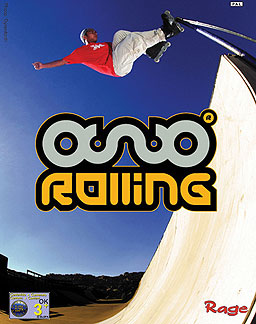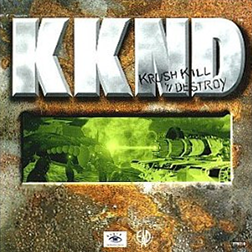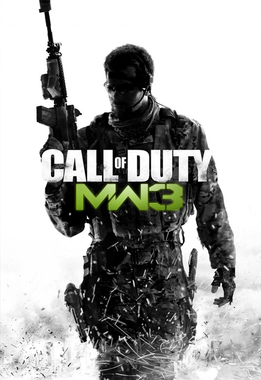Related Research Articles
Shareware is a type of proprietary software that is initially shared by the owner for trial use at little or no cost. Often the software has limited functionality or incomplete documentation until the user sends payment to the software developer. Shareware is often offered as a download from a website. Shareware differs from freeware, which is fully-featured software distributed at no cost to the user but without source code being made available; and free and open-source software, in which the source code is freely available for anyone to inspect and alter.
Claris International Inc., formerly FileMaker Inc., is a computer software development company formed as a subsidiary company of Apple Computer in 1987. It was given the source code and copyrights to several programs that were owned by Apple, notably MacWrite and MacPaint, in order to separate Apple's application software activities from its hardware and operating systems activities.

The Tapwave Zodiac is a mobile entertainment console and personal digital assistant. Tapwave announced the system in May 2003 and began shipping in October of that same year. The Zodiac was designed to be a high-performance mobile entertainment system centered on video games, music, photos, and video for 18- to 34-year-old gamers and technology enthusiasts. By running an enhanced version of the Palm Operating System (5.2T), Zodiac also provided access to Palm's personal information management software and many other applications from the Palm developer community. The company was based in Mountain View, California.

Steam is a video game digital distribution service and storefront managed by Valve. It was launched as a software client in September 2003 to provide game updates automatically for Valve's games and expanded to distributing third-party titles in late 2005. Steam offers various features, like game server matchmaking with Valve Anti-Cheat measures, social networking, and game streaming services. Steam client's functions include game update automation, cloud storage for game progress, and community features such as direct messaging, in-game overlay functions and a virtual collectable marketplace.

Hardcore Homecoming was a series of professional wrestling events which were advertised as a reunion of talent from the defunct Extreme Championship Wrestling promotion. The tour was booked and promoted by Cody Michaels, Shane Douglas and Jeremy Borash in 2005. The event footage was released on DVD with a companion documentary of ECW's history called Forever Hardcore.
A game demo is a trial version of a video game that is limited to a certain time period or a point in progress. A game demo comes in forms such as shareware, demo discs, downloadable software, and tech demos.

WWE SmackDown! vs. Raw 2006 is a professional wrestling video game and developed by Yuke's that was released on the PlayStation 2 and PlayStation Portable by THQ in 2005. It is part of the WWE SmackDown vs. Raw video game series based on the professional wrestling promotion World Wrestling Entertainment (WWE), and is the successor to the 2004 game of the same name. SmackDown! vs. Raw 2006 was also the first game in the series to be released on PlayStation Portable and the last game in the SmackDown!/SmackDown! vs. Raw series that was PlayStation exclusive.

Fire Pro Wrestling is a professional wrestling video game series originating from Japan, started in 1989 by Human Entertainment, and currently developed and owned by Spike Chunsoft. The series is distinguished by its grappling system, which is primarily based on timed button presses and strategy. Another signature feature of the series is its Edit mode, a character creation feature with many options to customize appearances, wrestling moves and character artificial intelligence behavior.

WWE SmackDown vs. Raw 2007 is a professional wrestling video game developed by Yuke's and published by THQ in 2006. It is the third game under the WWE SmackDown vs Raw name, the eighth game overall in the video game series based on the World Wrestling Entertainment (WWE) professional wrestling promotion, and is the successor to 2005's WWE SmackDown! vs. Raw 2006. The game was released worldwide in November 2006 for PlayStation 2 and Xbox 360, and a month later for PlayStation Portable. The Xbox 360 version was the first game in the series to be published on a seventh generation video game console. A PlayStation 3 version was also planned as a launch title but was later canceled.

Rolling is a 2003 extreme sports video game developed by Rage Software and published by SCi for the PlayStation 2 and Xbox. The game is a simulation of aggressive inline skating in which players skate as one of twenty professional skaters and complete various goals across fourteen levels. Described by the publisher as "the world's most realistic in-line skating game", the game was developed with a realistic design approach, using the input of professional skaters and basing several levels on international skate parks. Production of Rolling was troubled, with the game's release endangered following the financial troubles and collapse of developer Rage Software. SCi acquired and published the game in Europe, with plans for a Game Boy Advance and GameCube release abandoned. Upon release, Rolling received mixed reviews, with several reviewers critiquing the game's linear and dated design compared to the innovations in more recent extreme sports titles, including the Tony Hawk's Pro Skater series.
Grey Dog Software is a computer games development company, based in Phoenix, Arizona, and specializing in sports text simulations. Notable games released by Grey Dog include the Total Extreme Wrestling series and the Wrestling Spirit series.

KKnD, or Krush, Kill 'n' Destroy is the first of three real-time strategy games in the KKnD series, released on March 5, 1997 in the United States and Australia and March 21, 1997 in Europe. The game was an Australian project from Melbourne-based developer Beam Software.

WWE SmackDown vs. Raw 2010 is a professional wrestling video game developed by Yuke's and published by THQ for PlayStation 2 (PS2), PlayStation 3 (PS3), PlayStation Portable (PSP), Wii, Nintendo DS, Xbox 360, and iOS. It was released worldwide in October 2009, with the PS3 and Xbox 360 versions for Japan in January 2010. TOSE oversaw the development for the Nintendo DS version, which was the last installment to be released for the handheld. 2010 was also the first installment to be released as an iPhone app, launching on App Store on December 23 the same year.

WWE All Stars is a professional wrestling video game published by THQ and developed by THQ San Diego for the PlayStation 3 and Xbox 360 systems and Subdued Software for the PlayStation Portable, Wii, Nintendo 3DS and PlayStation 2 systems. The game features current and former WWE wrestlers competing in fast-paced wrestling matches. It was released on March 29, 2011, in North America and April 1, 2011, in Europe. It is also the only WWE video game to be available for the Nintendo 3DS and the last WWE video game to be released on the PlayStation 2 and PlayStation Portable.

Call of Duty: Modern Warfare 3 is a 2011 first-person shooter video game, jointly developed by Infinity Ward and Sledgehammer Games and published by Activision. The game was released worldwide in November 8 2011 for Microsoft Windows, the Xbox 360, PlayStation 3, Wii, and OS X. It is the sequel to Call of Duty: Modern Warfare 2 (2009), serving as the third and final installment in the original Modern Warfare trilogy and the eighth Call of Duty installment overall. A separate version for the Nintendo DS was developed by n-Space, while Treyarch developed the game's Wii port. In Japan, Square Enix published the game with a separate subtitled and dubbed version.

Super Smash Flash is a series of fighting browser games published by McLeodGaming, led by Gregory McLeod under the alias Cleod9. It is based on the Super Smash Bros series. The original Super Smash Flash is based specifically on Super Smash Bros. Melee. Its follow-up, also considered a reboot, is Super Smash Flash 2. The developer is currently working on an original crossover fighting game, Fraymakers.

Mantle was a low-overhead rendering API targeted at 3D video games. AMD originally developed Mantle in cooperation with DICE, starting in 2013. Mantle was designed as an alternative to Direct3D and OpenGL, primarily for use on personal computers, although Mantle supports the GPUs present in the PlayStation 4 and in the Xbox One. In 2015, Mantle's public development was suspended and in 2019 completely discontinued, as DirectX 12 and the Mantle-derived Vulkan rose in popularity.
Early access, also known as alpha access, alpha founding, paid alpha, or game preview, is a funding model in the video game industry by which consumers can purchase and play a game in the various pre-release development cycles, such as pre-alpha, alpha, and/or beta, while the developer is able to use those funds to continue further development on the game. Those that pay to participate typically help to debug the game, provide feedback and suggestions, may have access to special materials in the game. The early-access approach is a common way to obtain funding for indie games, and may also be used along with other funding mechanisms, including crowdfunding. Many crowdfunding projects promise to offer access to alpha and/or beta versions of the game as development progresses; however, unlike some of these projects which solicit funds but do not yet have a playable game, all early access games offer an immediately playable version of the unfinished game to players.

Stadia was a cloud gaming service developed and operated by Google. Known in development as Project Stream, the service debuted through a closed beta in October 2018, and publicly launched in November 2019. Stadia was accessible through Chromecast Ultra and Android TV devices, on personal computers via the Google Chrome web browser and other Chromium-based browsers, Chromebooks and tablets running ChromeOS, and the Stadia mobile app on supported Android devices. There was also an experimental mode with support for all Android devices that were capable of installing the Stadia mobile app. In December 2020, Google released an iOS browser-based progressive web application for Stadia, enabling gameplay in the Safari browser.

AEW Fight Forever is a professional wrestling video game developed by Yuke's and published by THQ Nordic. It is the debut title on home consoles and personal computers based on American professional wrestling promotion All Elite Wrestling (AEW).
References
- ↑ "Total Extreme Wrestling 2005 Release Date". Gamershell.com. September 7, 2005. Retrieved November 3, 2013.
- ↑ "Grey Dog Software Announces Total Extreme Wrestling 2007 and Developer's Journal". Gamershell.com. August 6, 2006. Retrieved November 3, 2013.
- ↑ "TEW2008 will include several additions suggested by fans of the series". Gamershell.com. January 2, 2008. Retrieved November 3, 2013.
- ↑ "TEW2010 Announced!". Grey Dog Software. May 2, 2023.
- ↑ "TEW2013 Is Announced". Grey Dog Software. July 31, 2012. Retrieved November 3, 2013.
- ↑ "Grey Dog Software Announces Total Extreme Wrestling 2016!". Grey Dog Software. January 8, 2016. Retrieved January 8, 2016.
- ↑ "TEW 2016 Developer's Journal". Gre Dog Software/Adam Ryland. February 1, 2016. Retrieved April 3, 2016.
- ↑ "Grey Dog Software Announces TEW 2016 release date!". Grey Dog Software. April 1, 2016. Retrieved April 3, 2016.
- ↑ "Total Extreme Wrestling 2020 Announced!". Grey Dog Software. December 8, 2018. Retrieved December 17, 2018.
- ↑ "TEW2020 Announcement & Developer's Journal". Adam Ryland. December 8, 2018. Retrieved February 23, 2020.
- ↑ "TEW2020 Announcement & Developer's Journal #1: Playing as child companies". Adam Ryland. December 10, 2018. Retrieved February 23, 2020.
- ↑ "TEW2020 Announcement & Developer's Journal #19: House Shows". Adam Ryland. February 1, 2019. Retrieved February 23, 2020.
- ↑ "TEW2020 Announcement & Developer's Journal #9: Attributes". Adam Ryland. December 27, 2018. Retrieved February 23, 2020.
- ↑ "Total Extreme Wrestling Interview". My Games Lounge. March 22, 2019. Retrieved February 23, 2020.
- ↑ "Grey Dog Software Announces TEW2020 release date!". Grey Dog Software. March 28, 2020. Retrieved March 28, 2020.